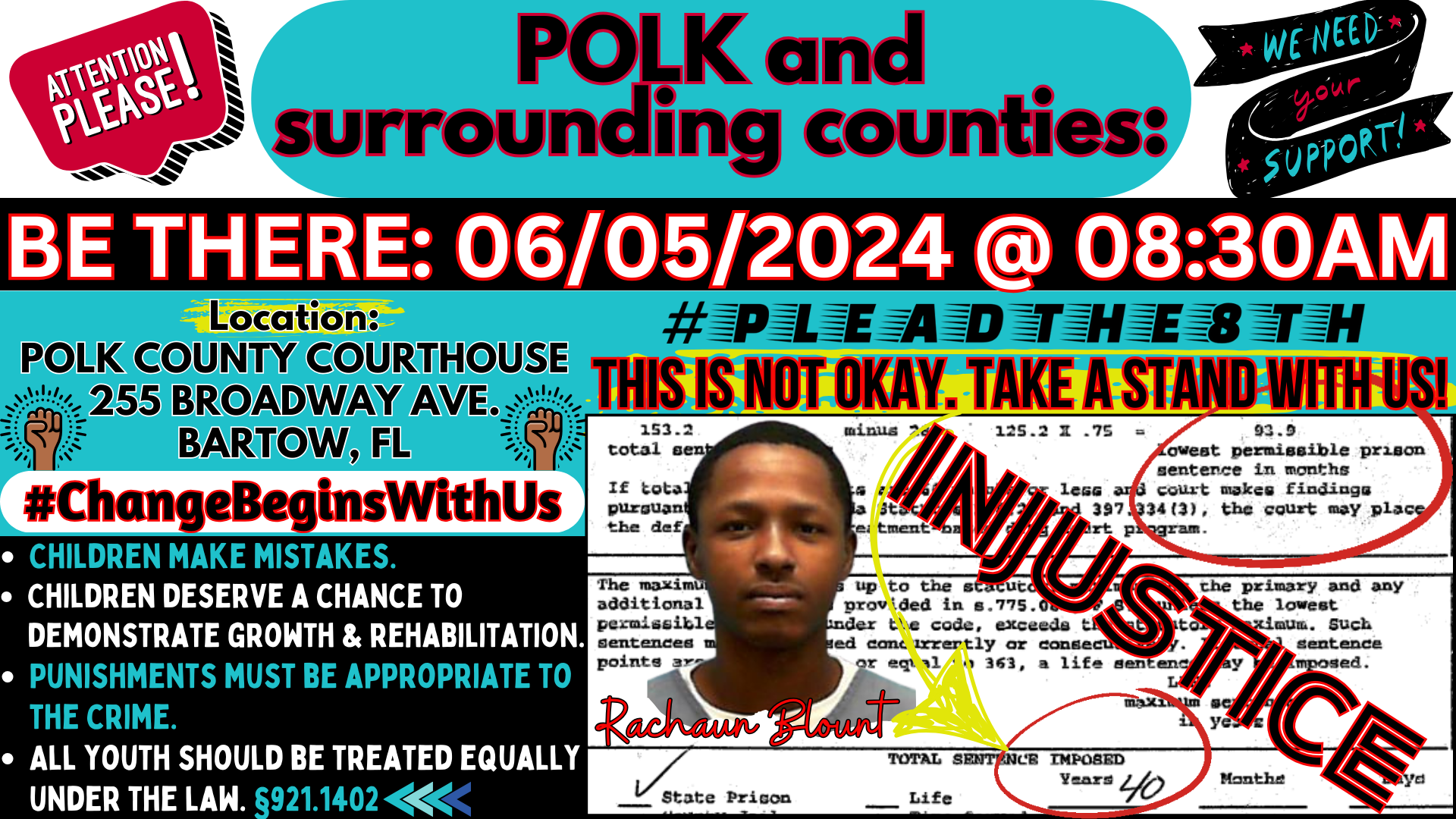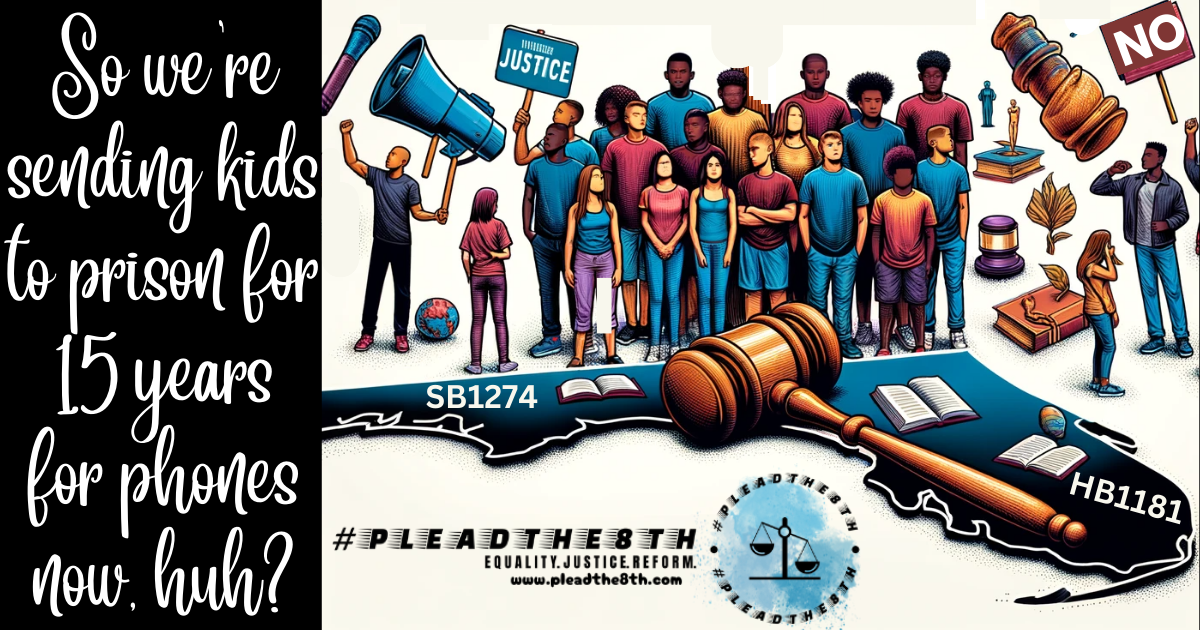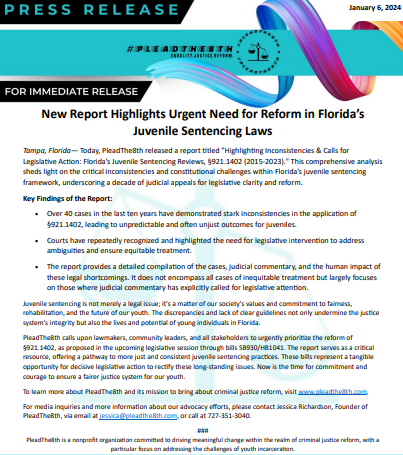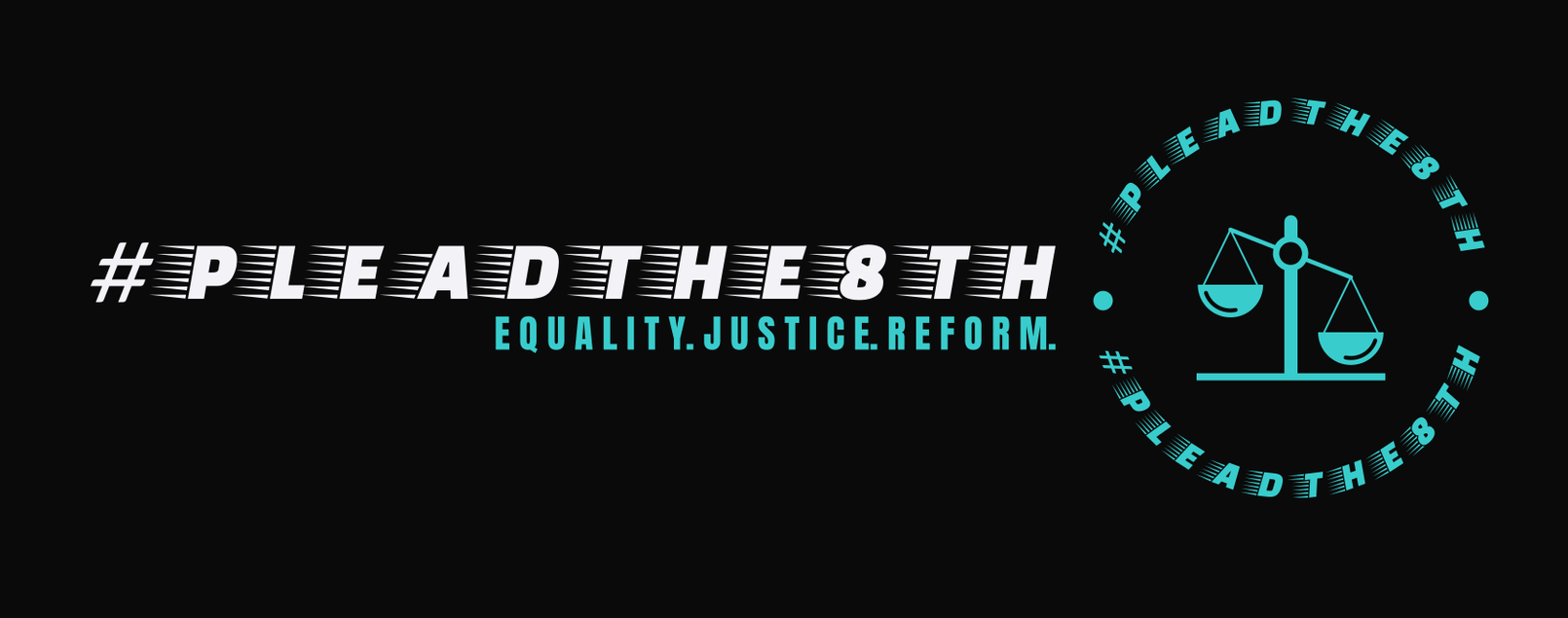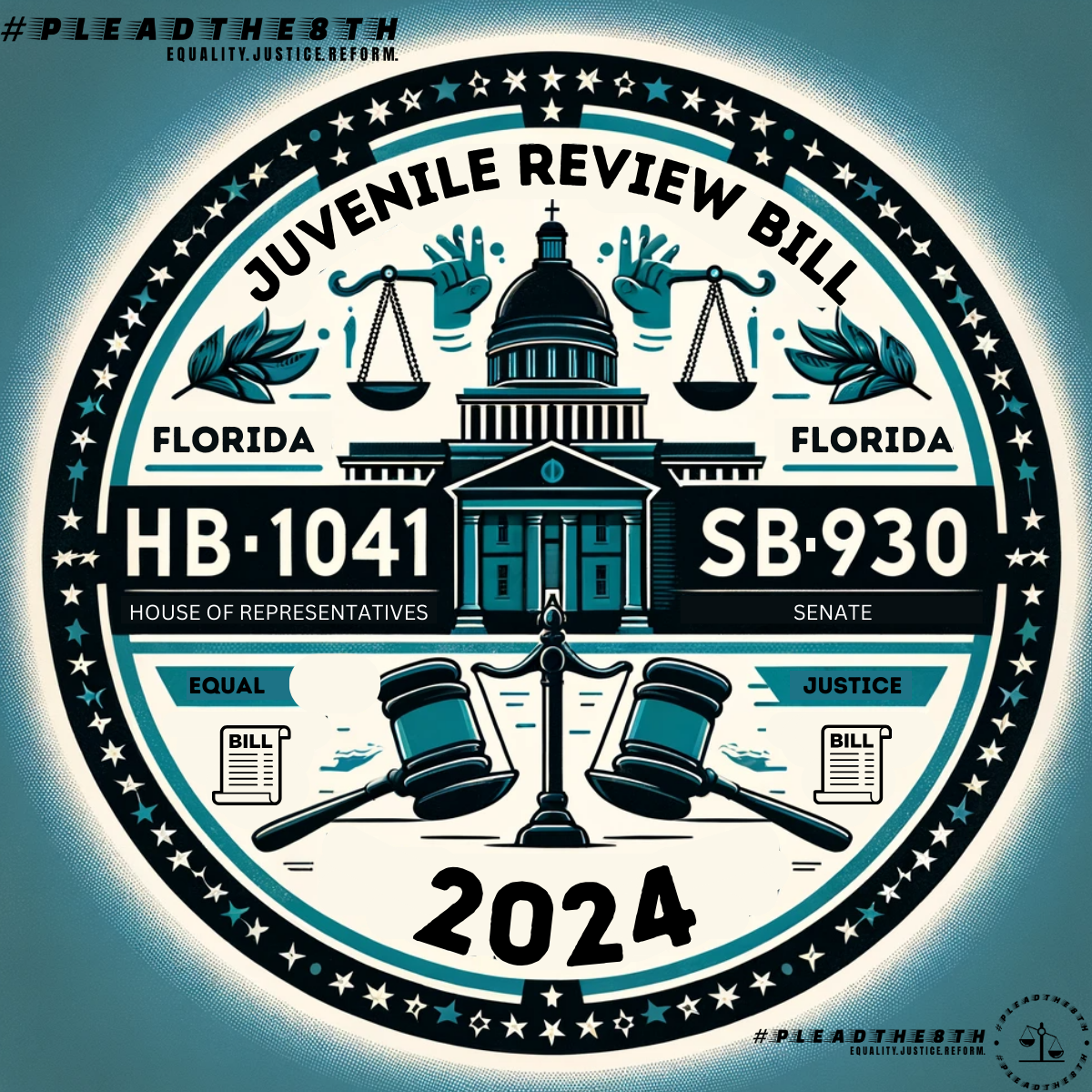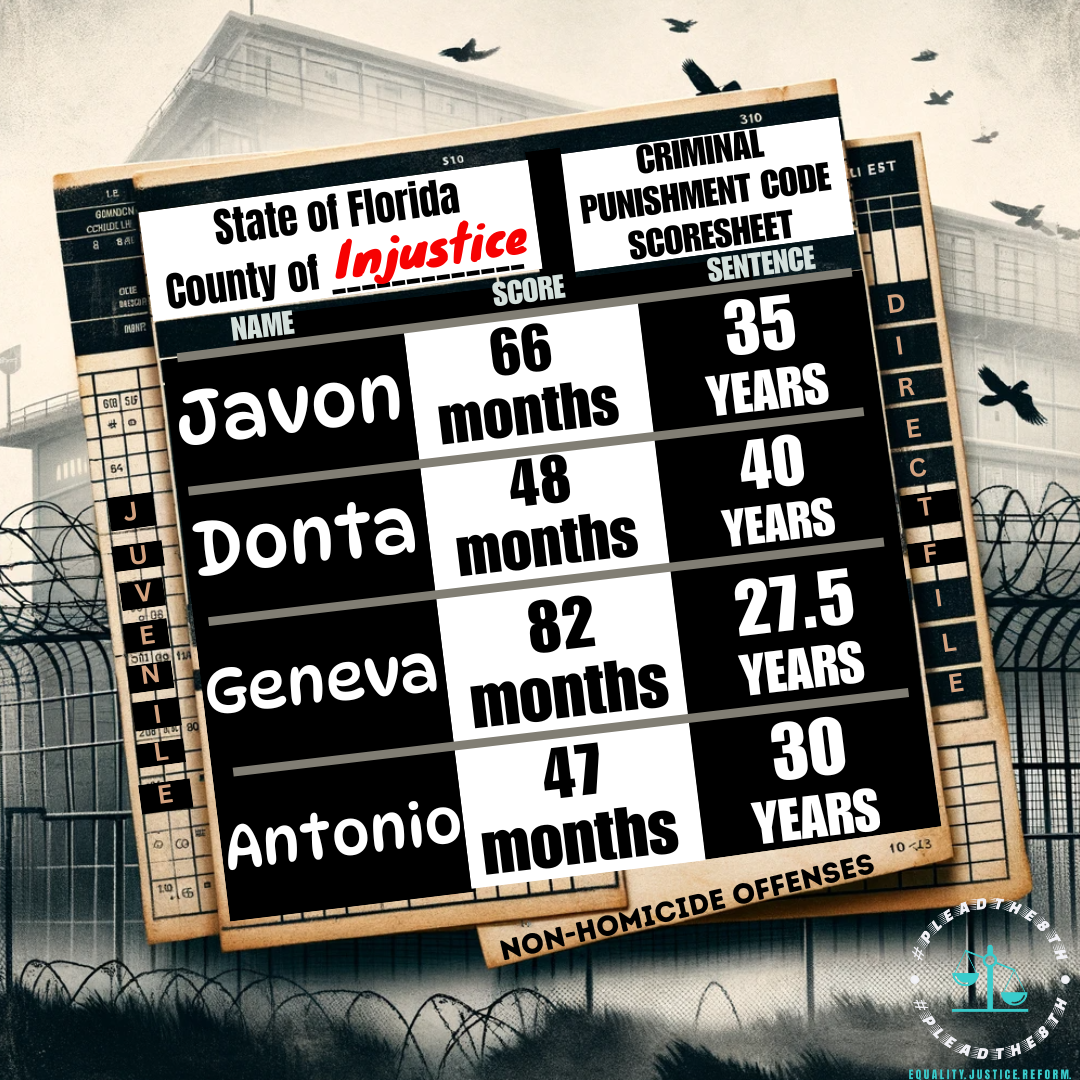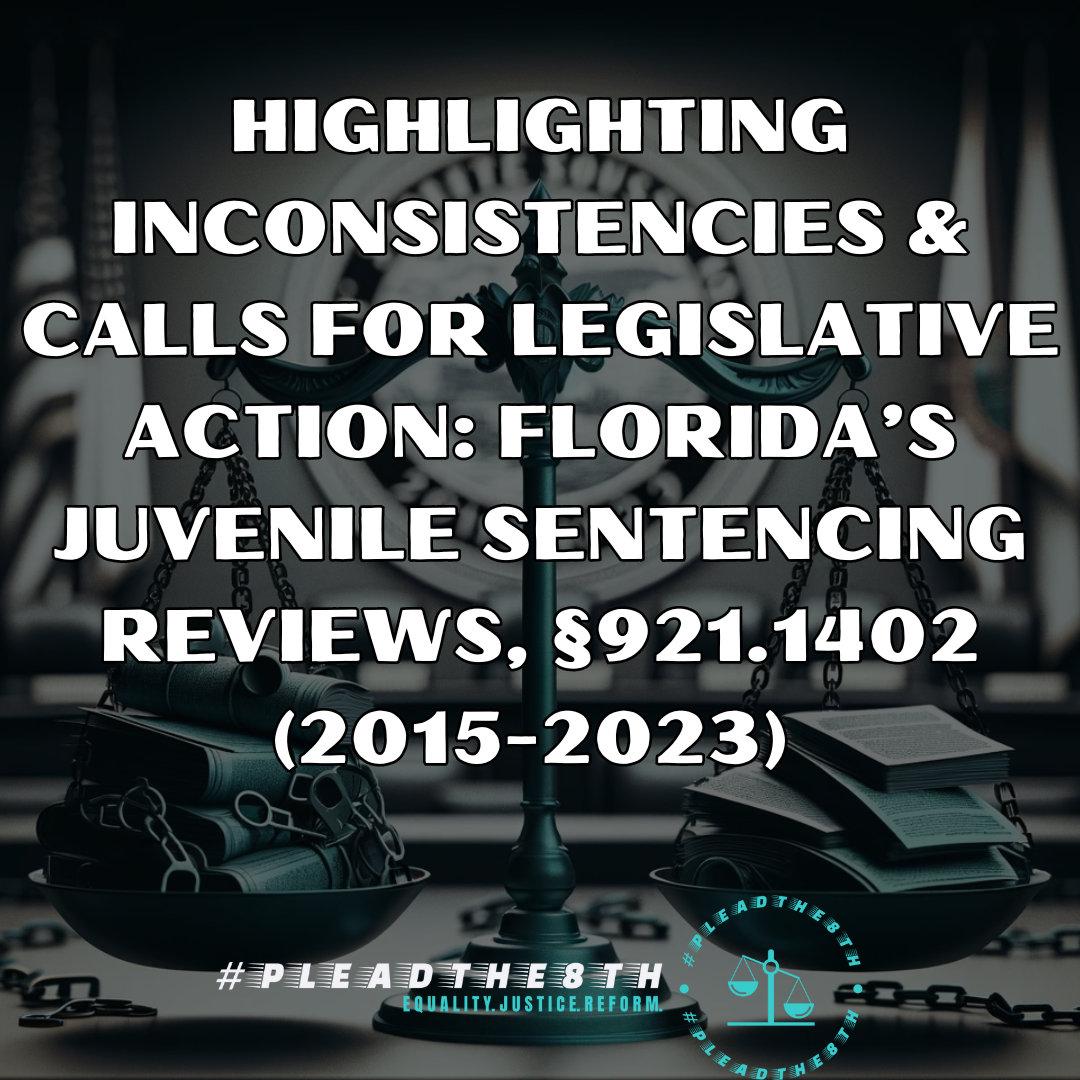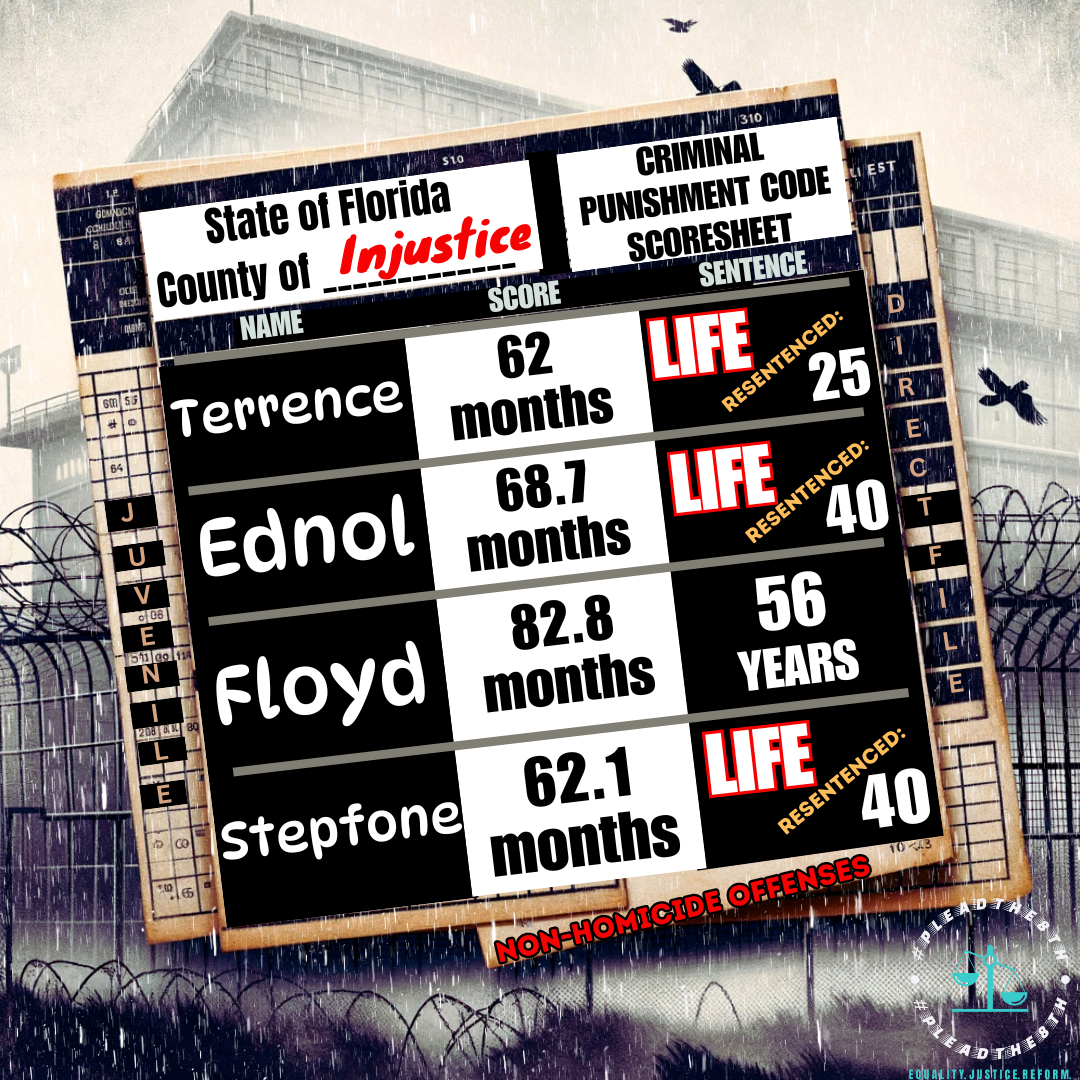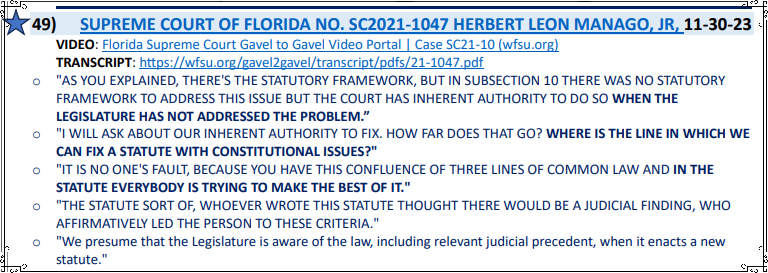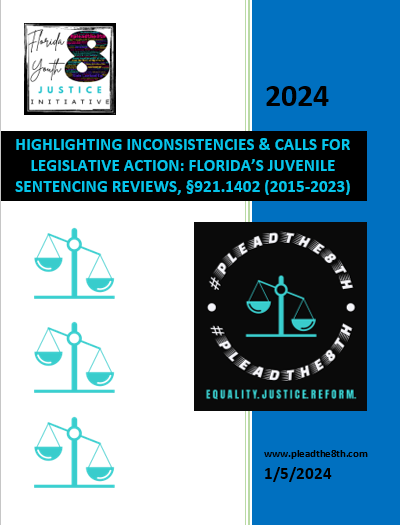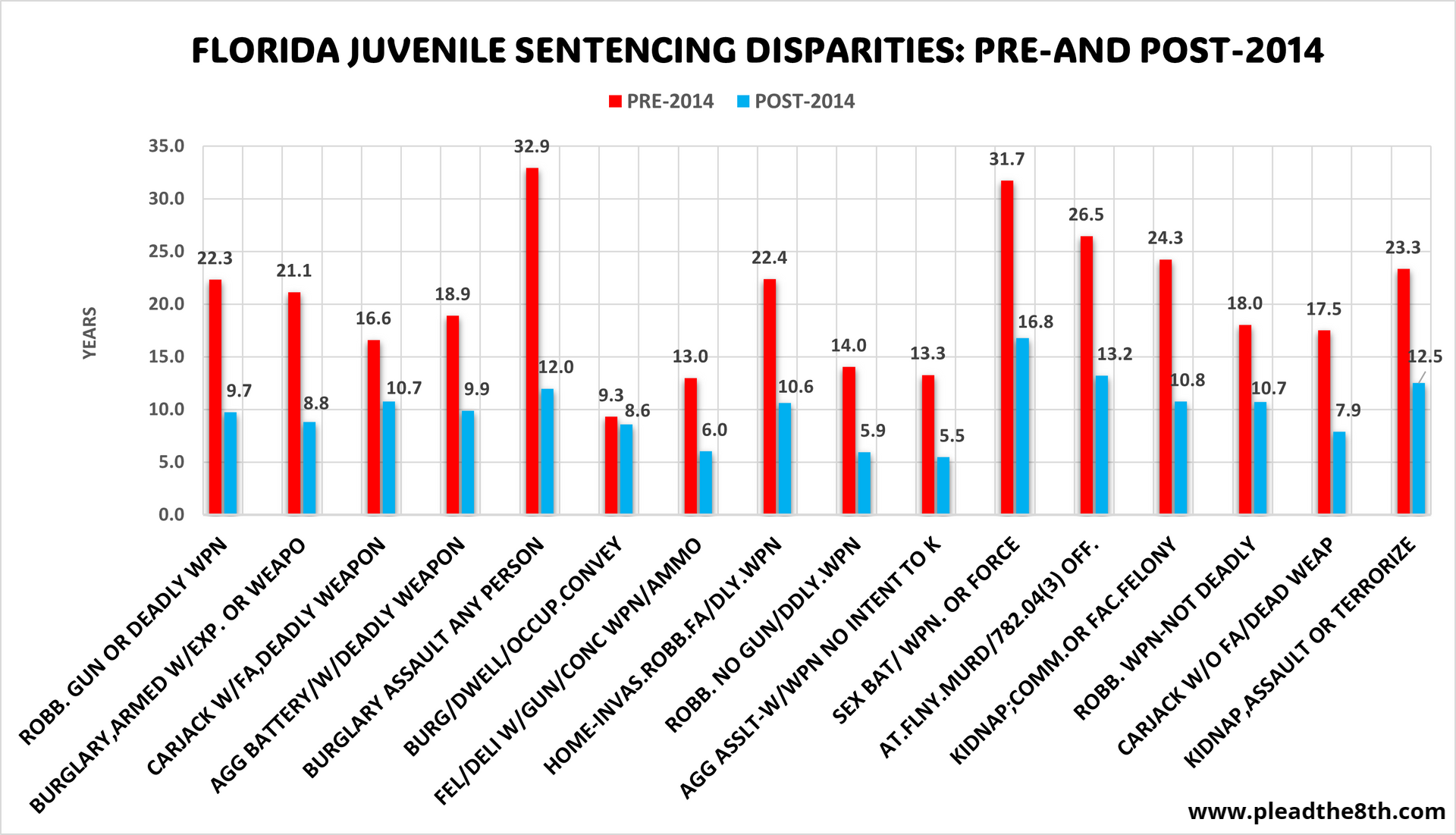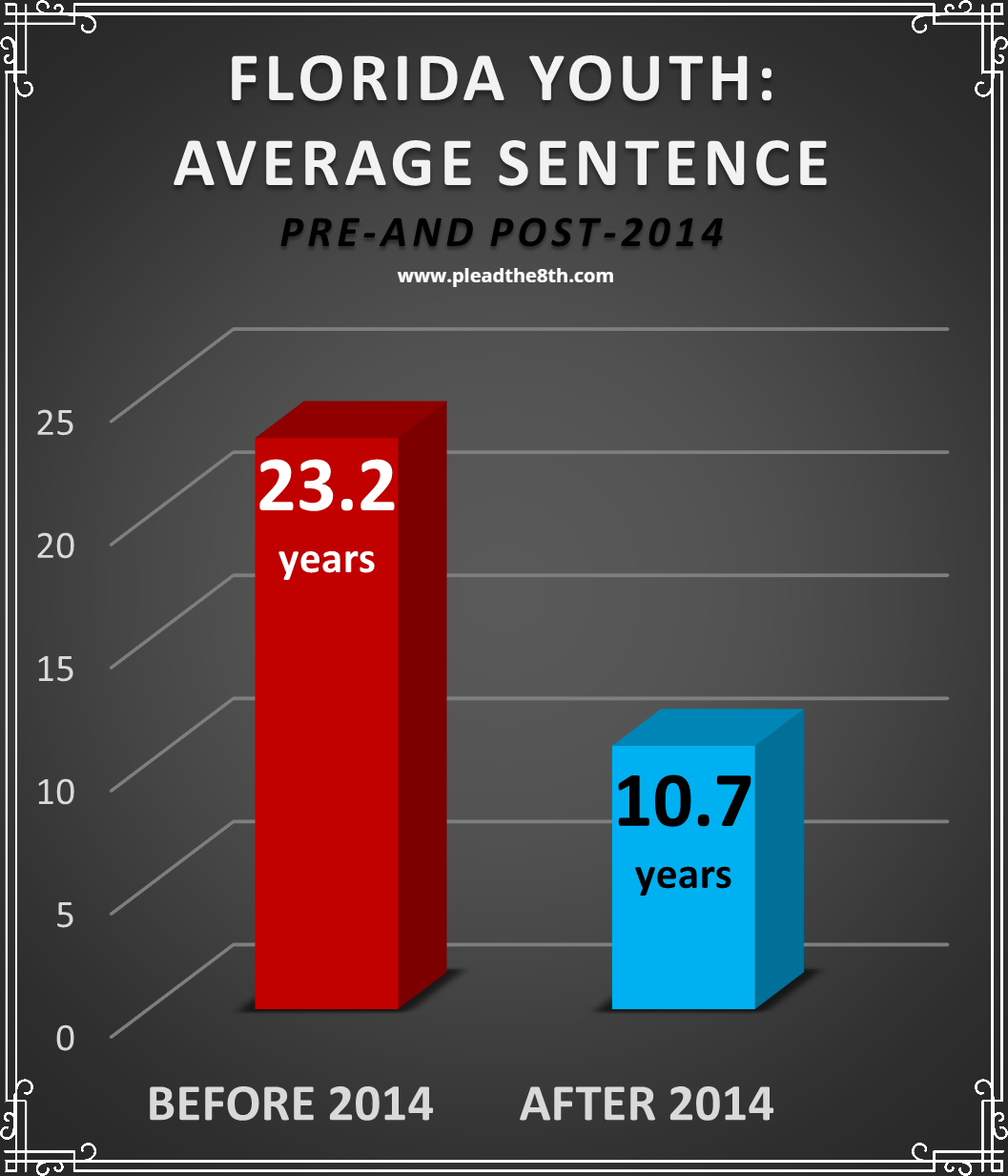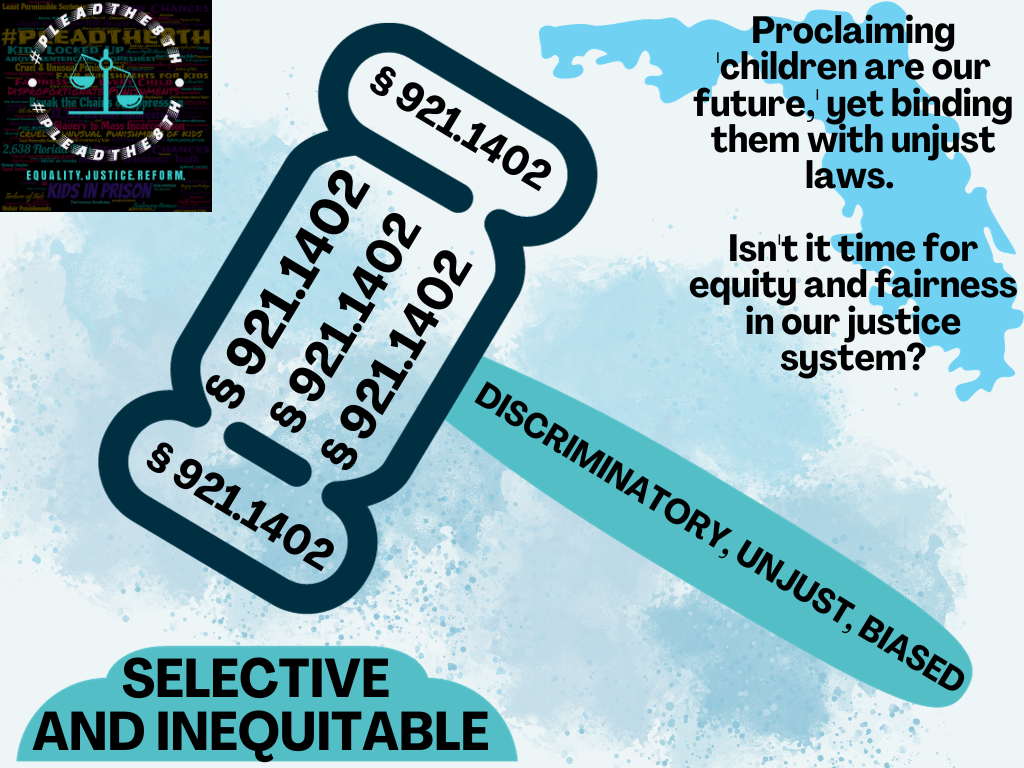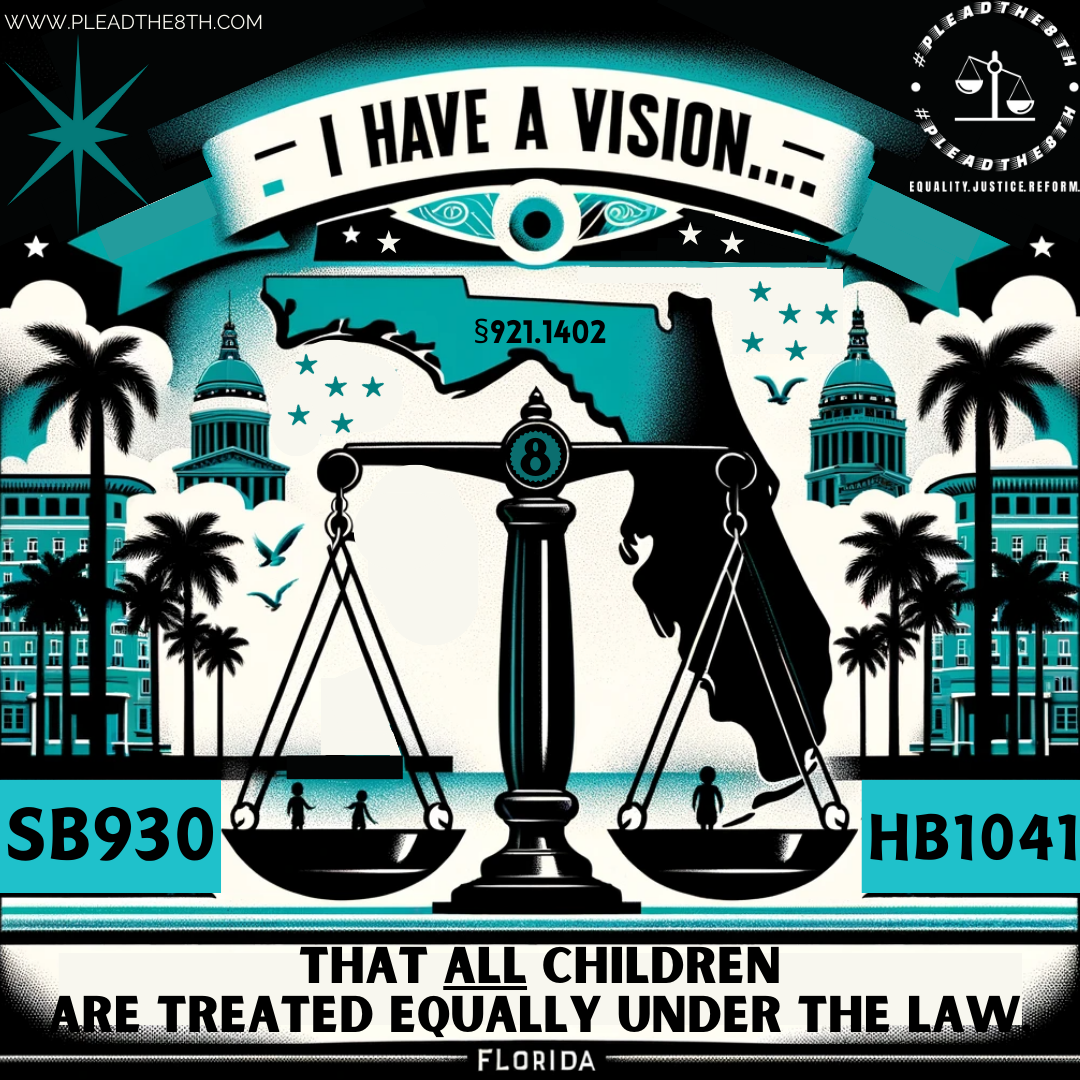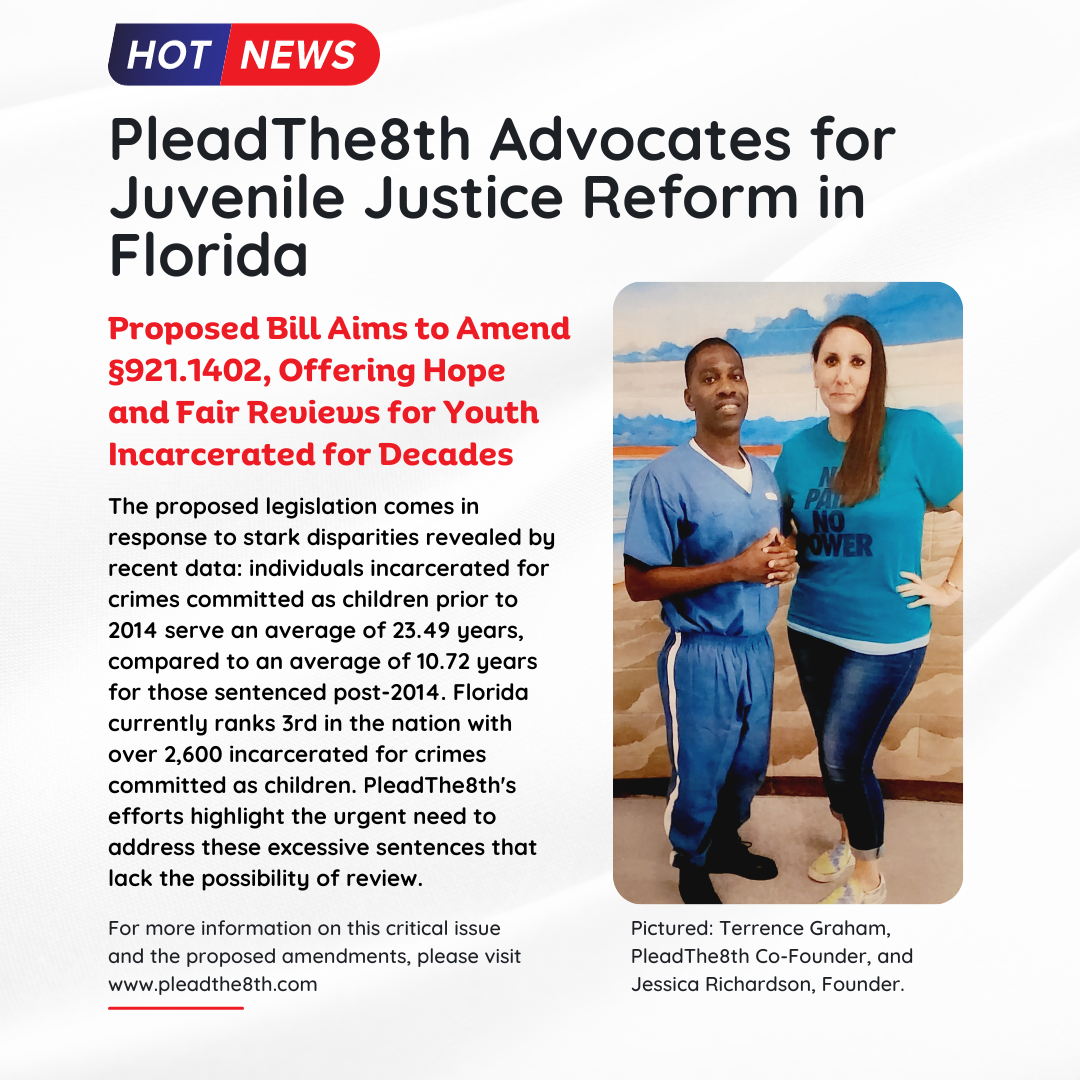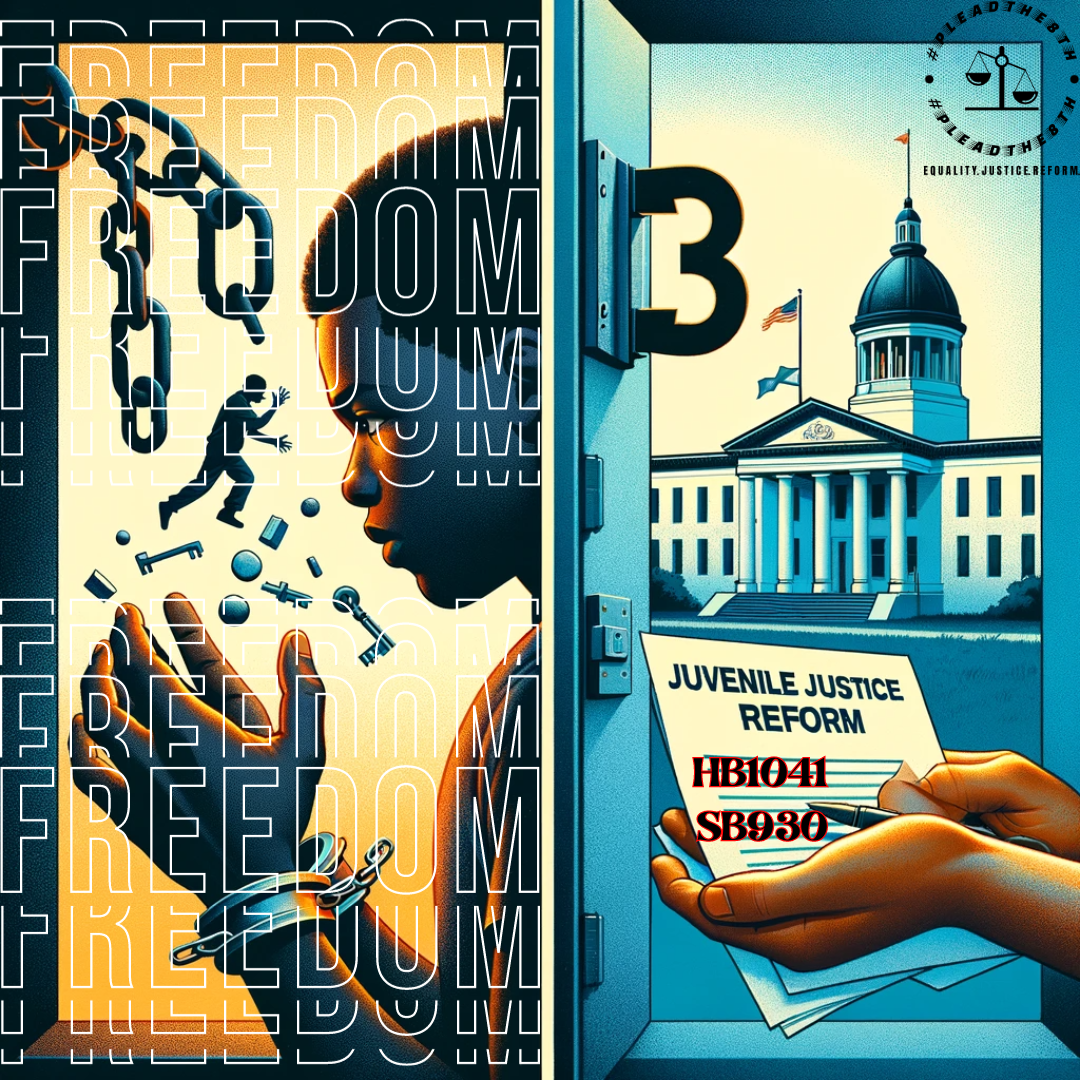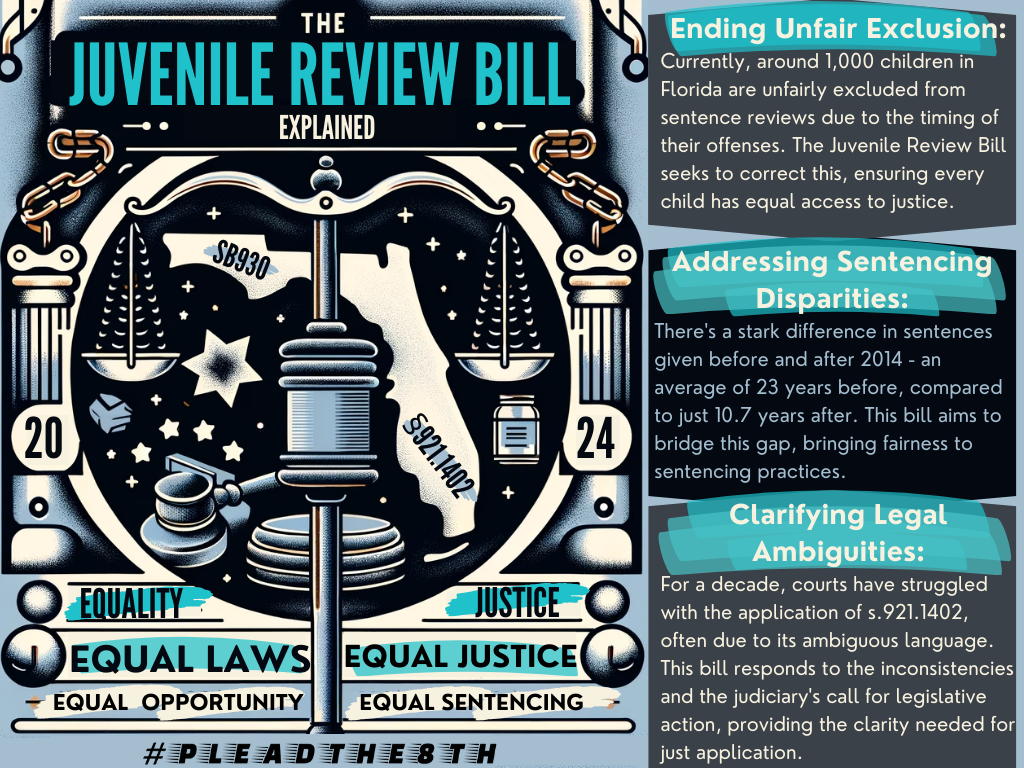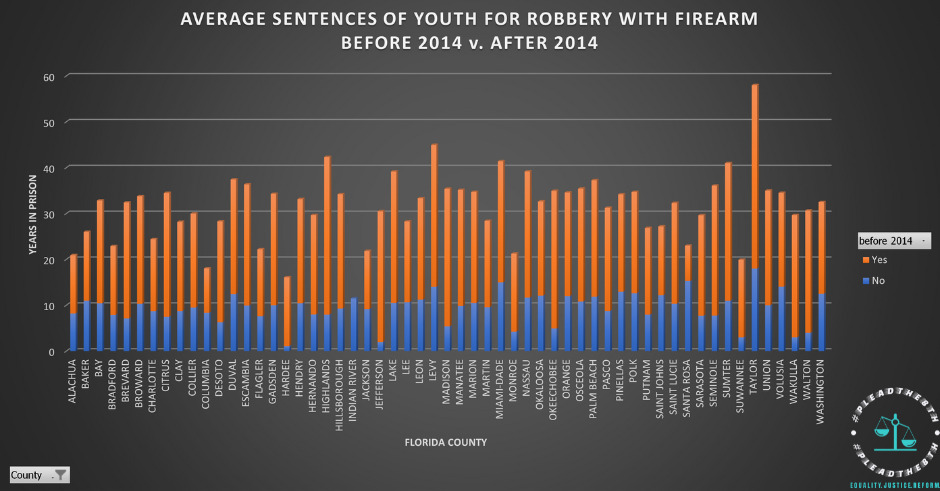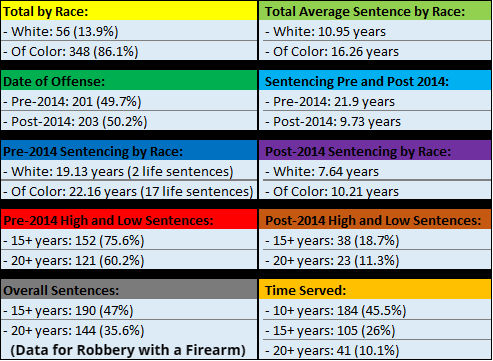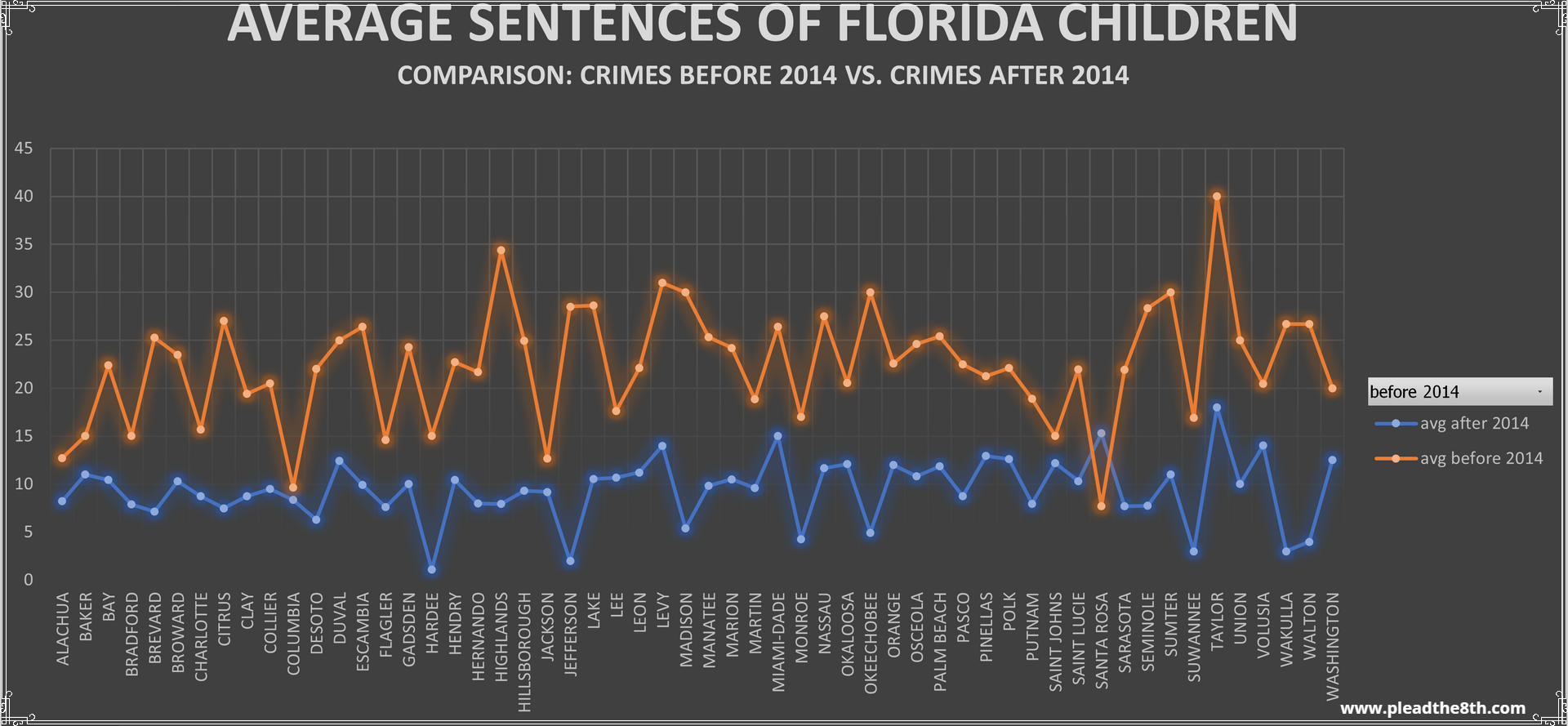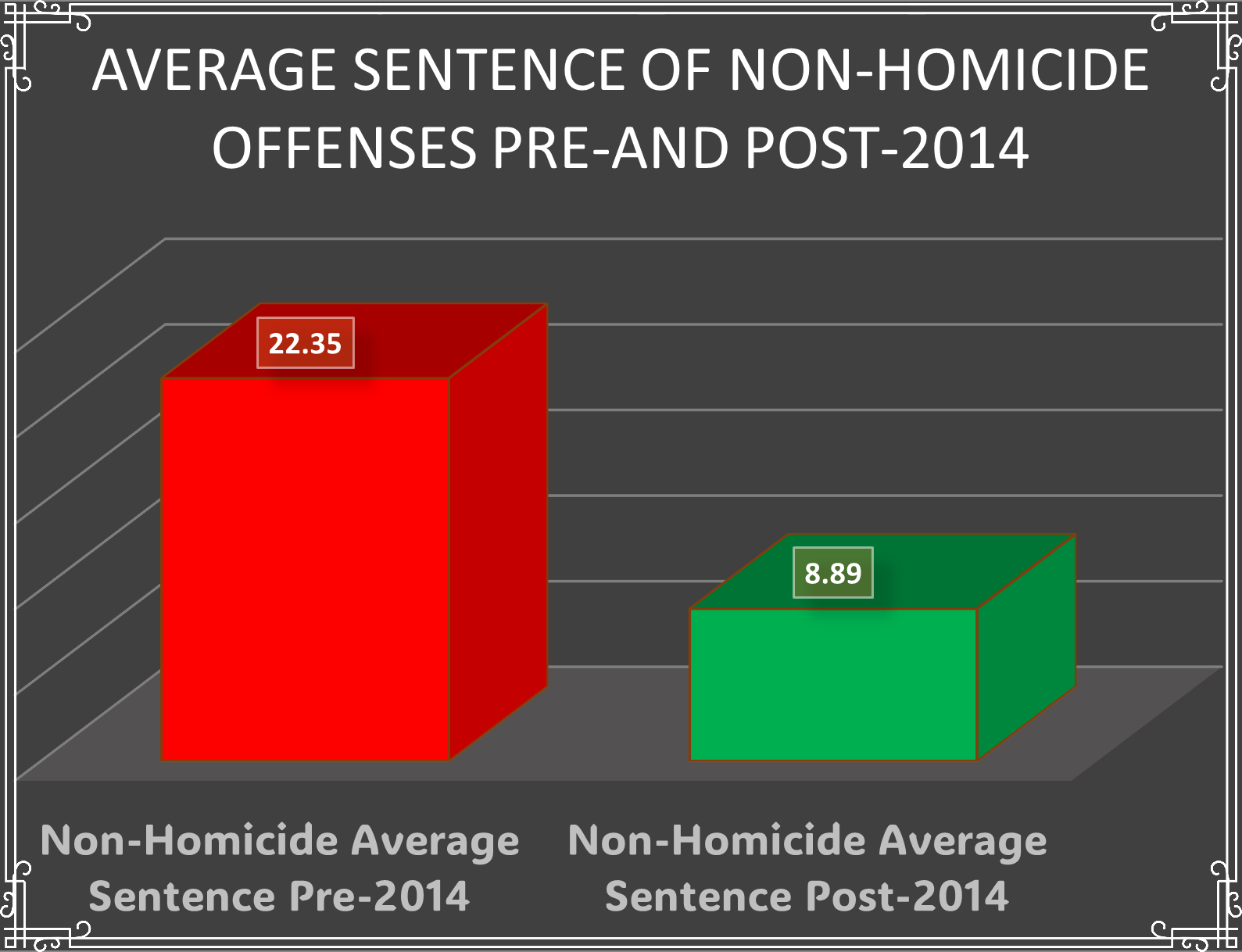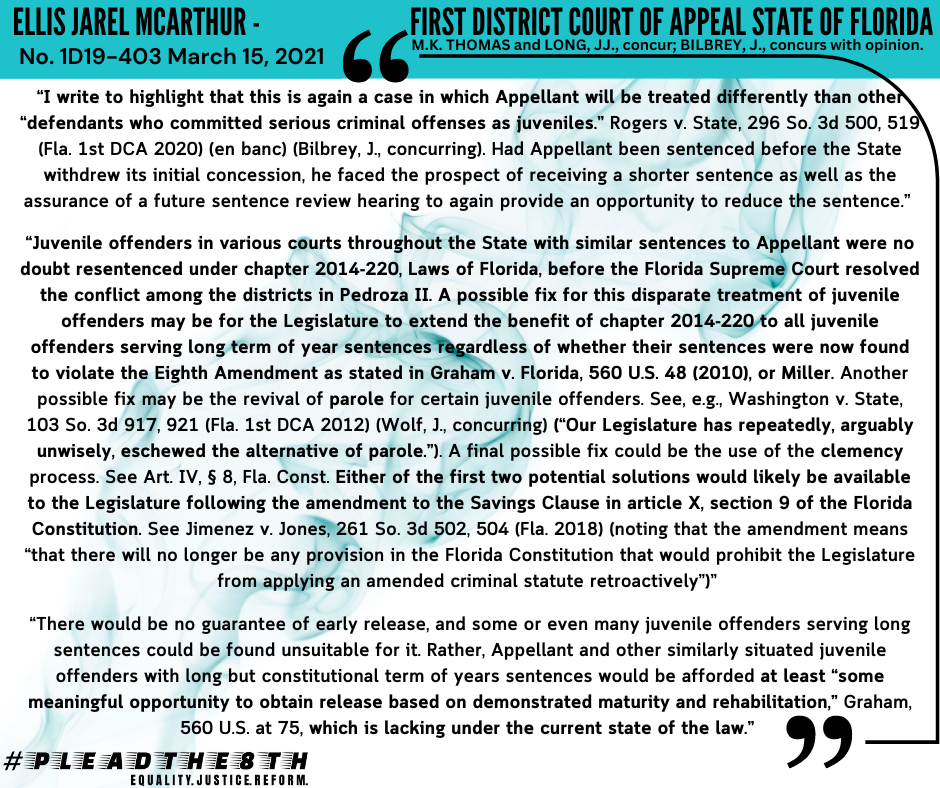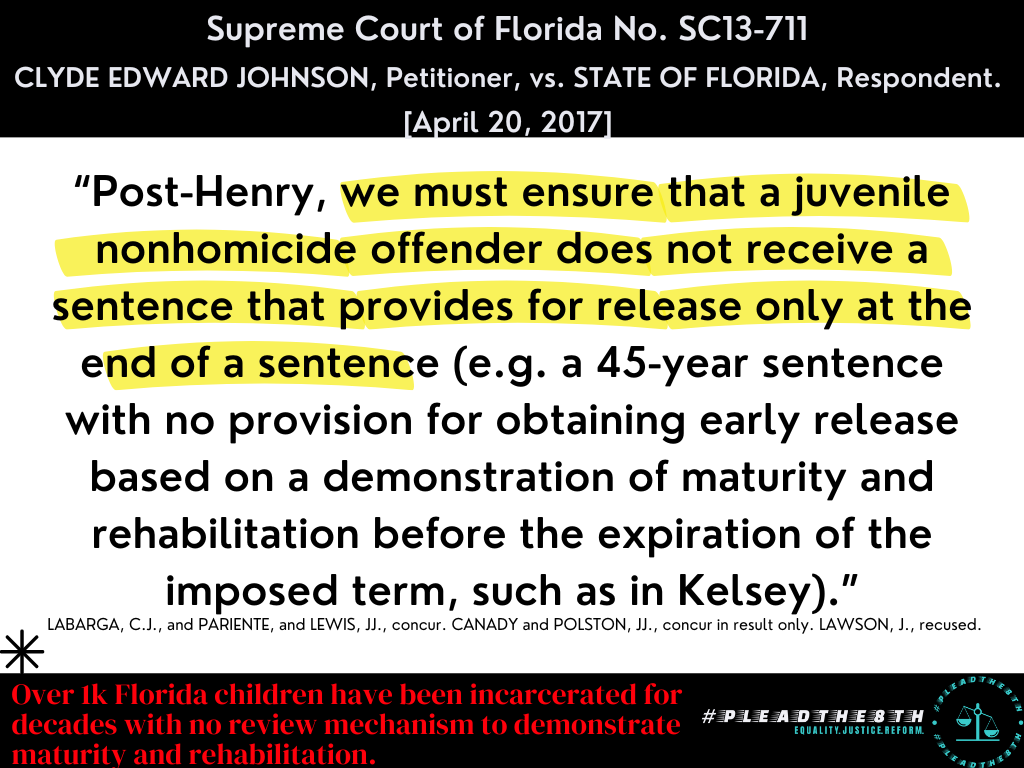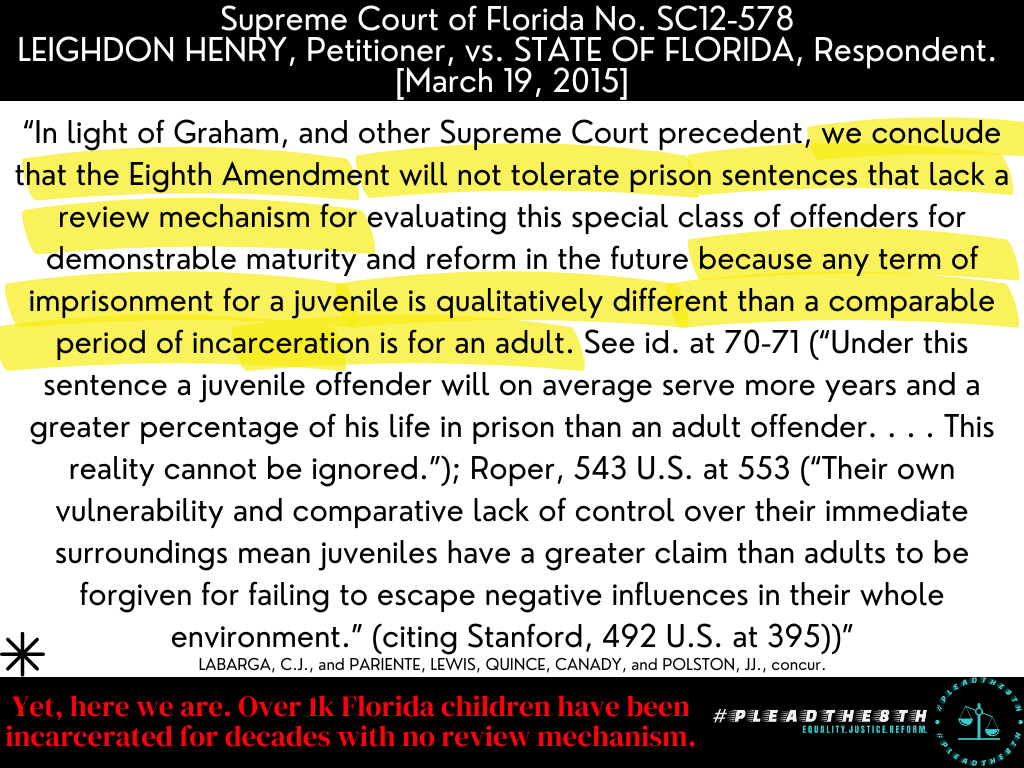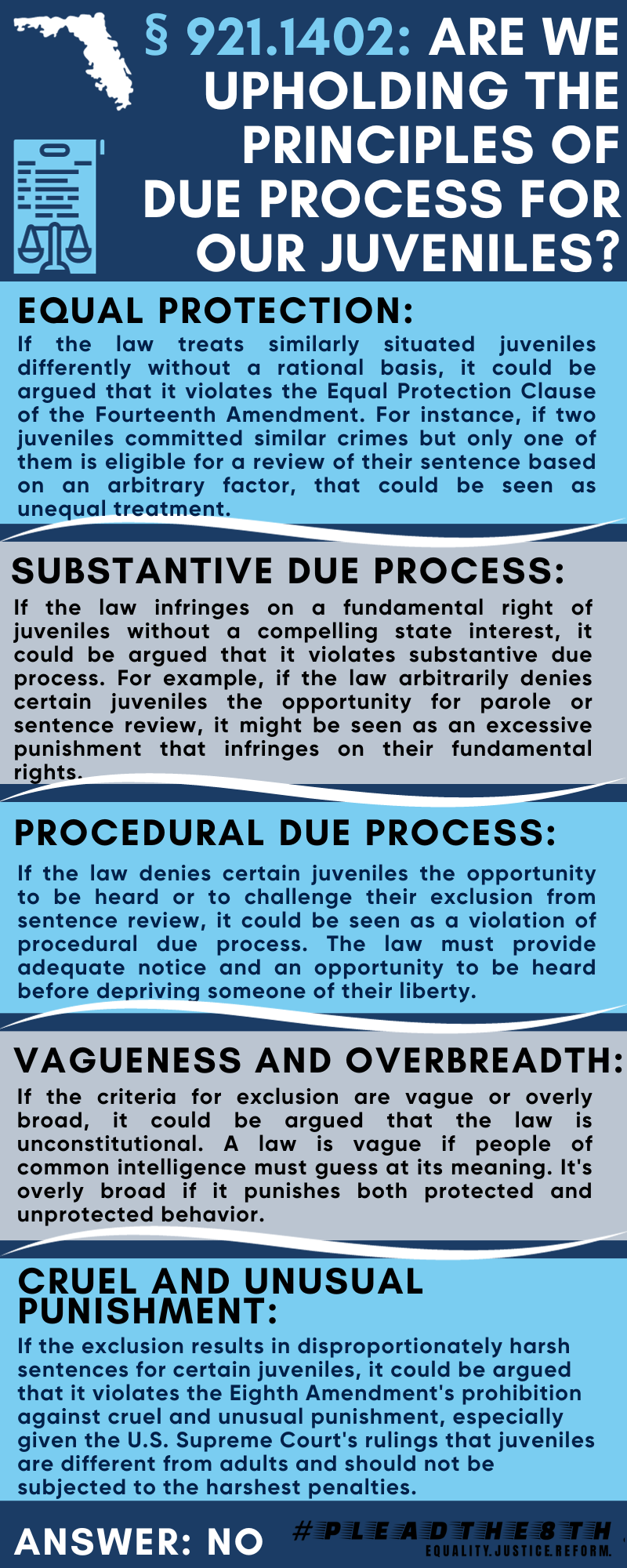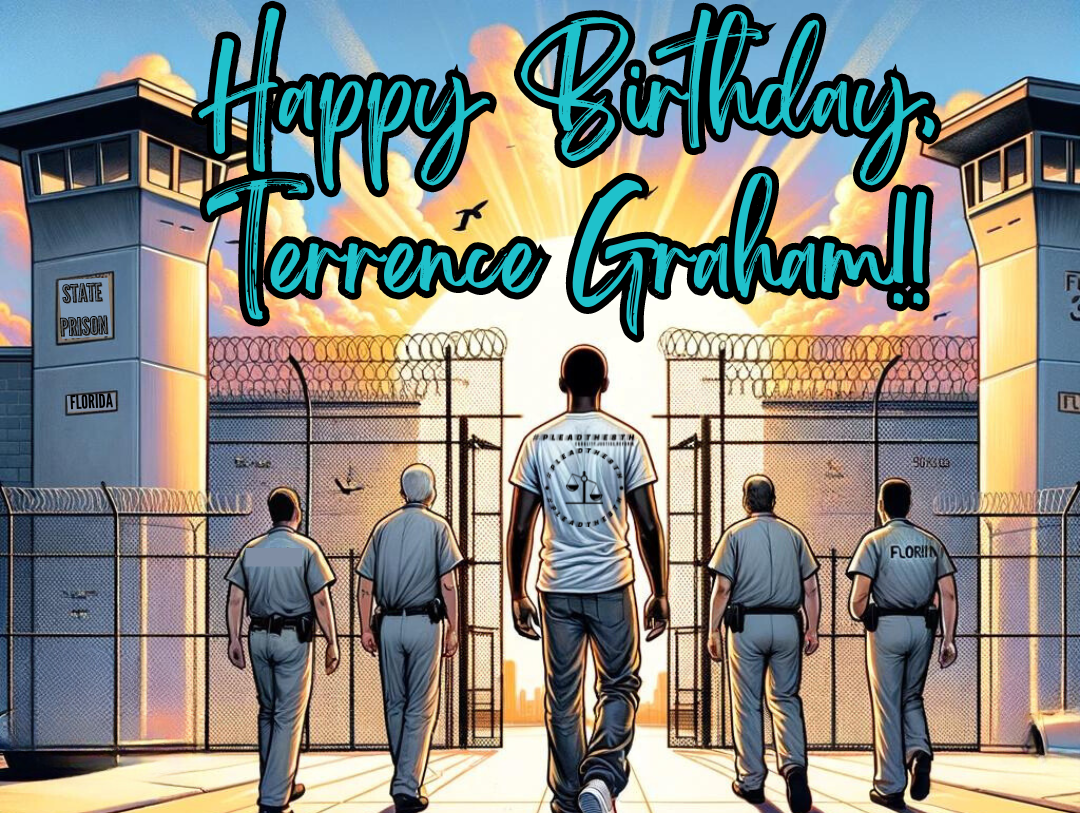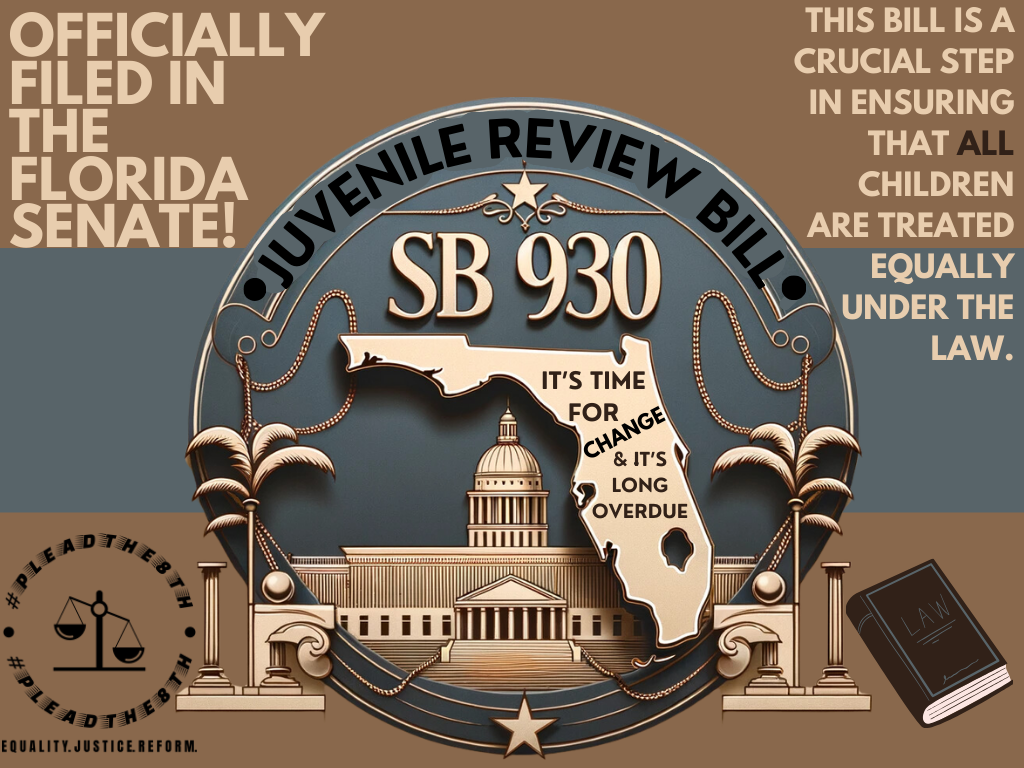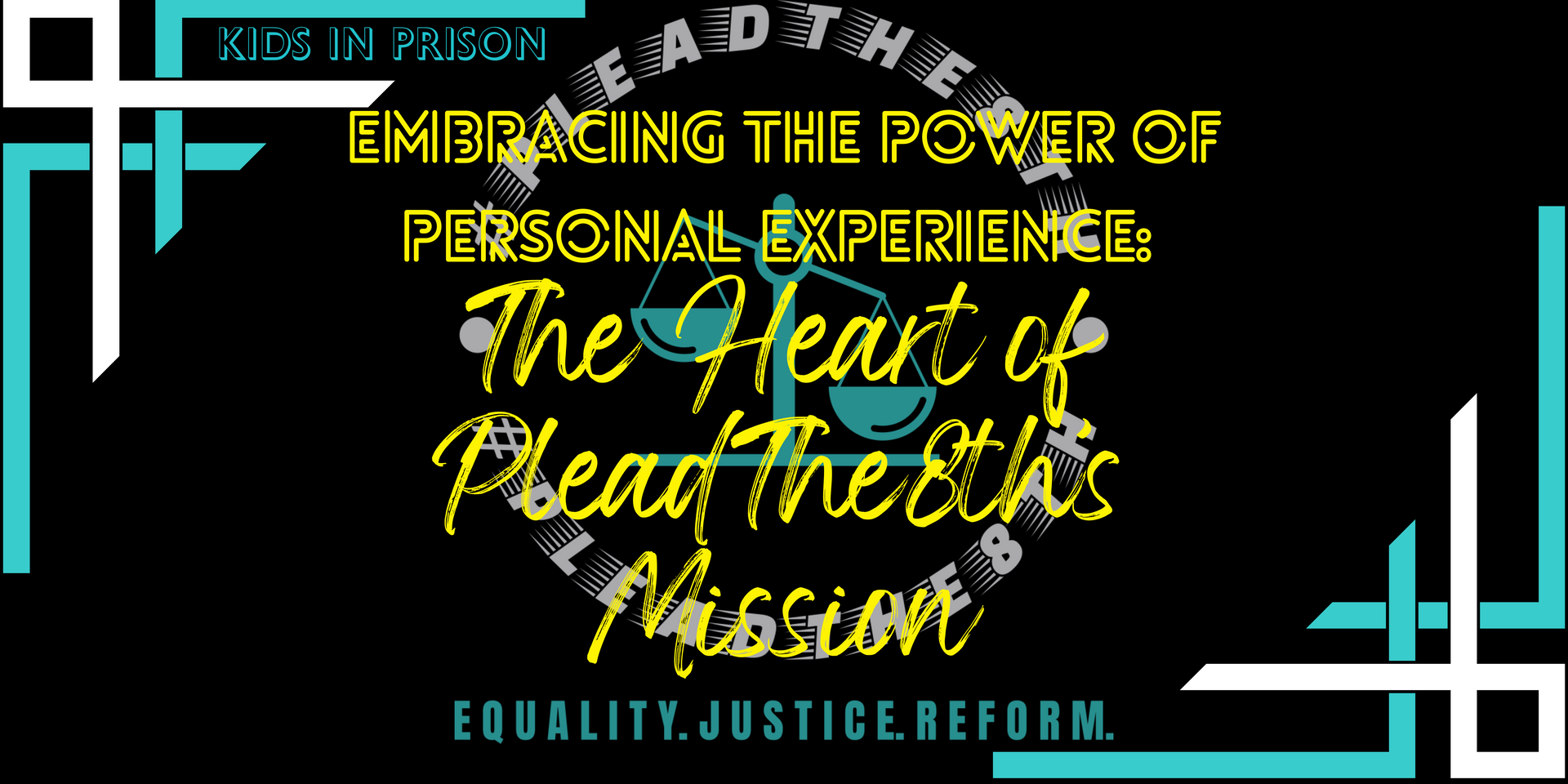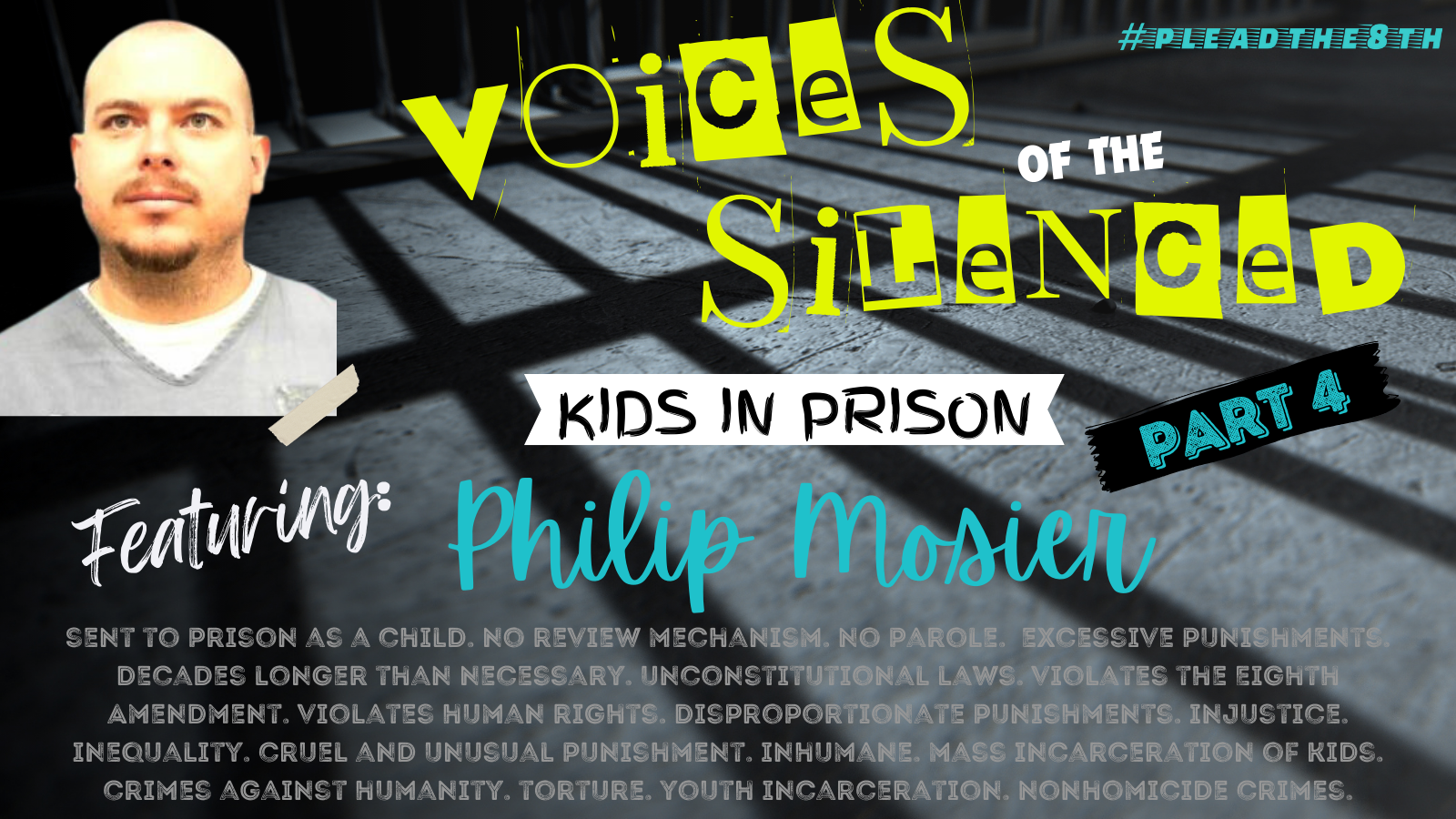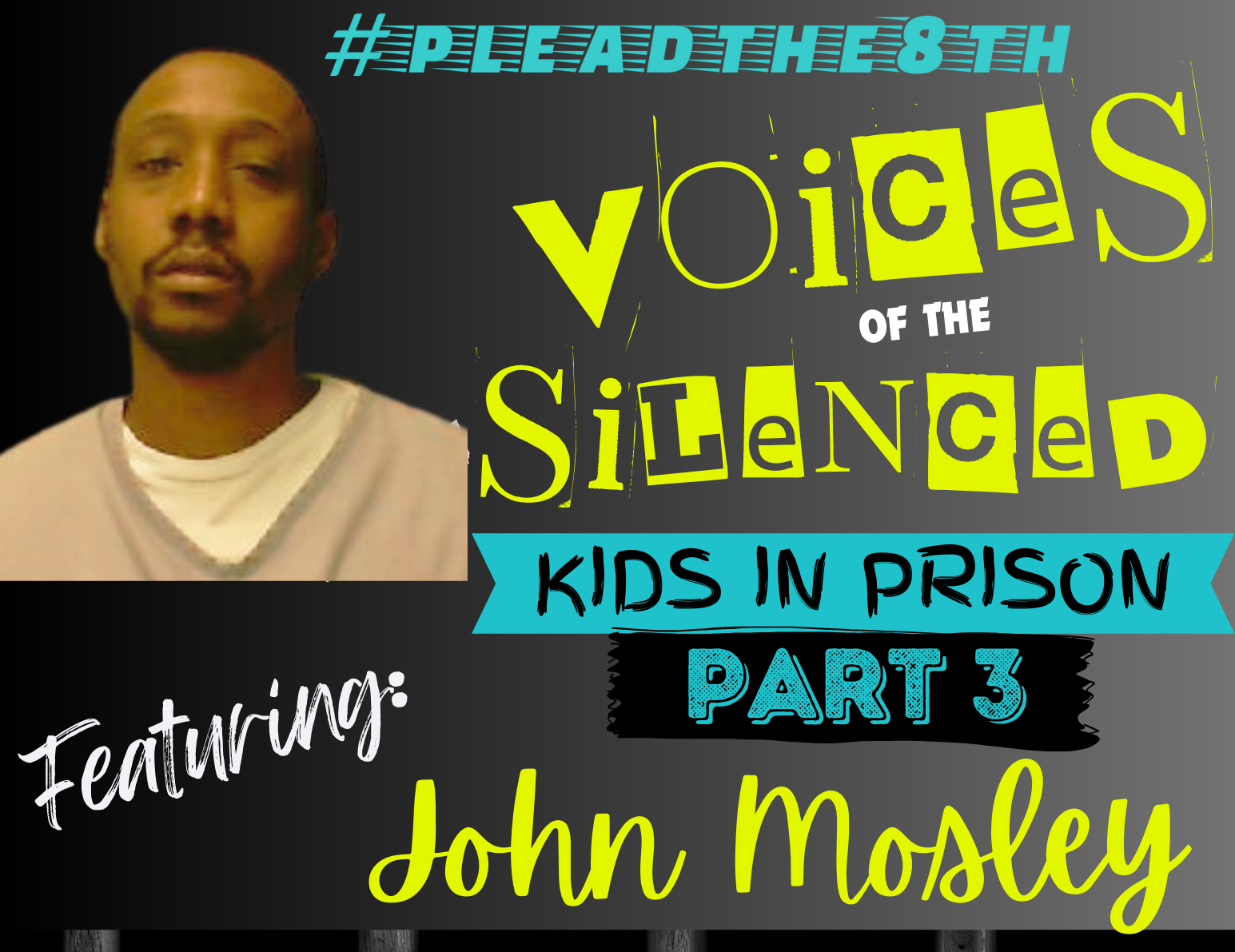Terrence Graham's Release and the Filing of Juvenile Justice Reform Bills HB1041/SB930 in Florida’s 2024 Legislative Session
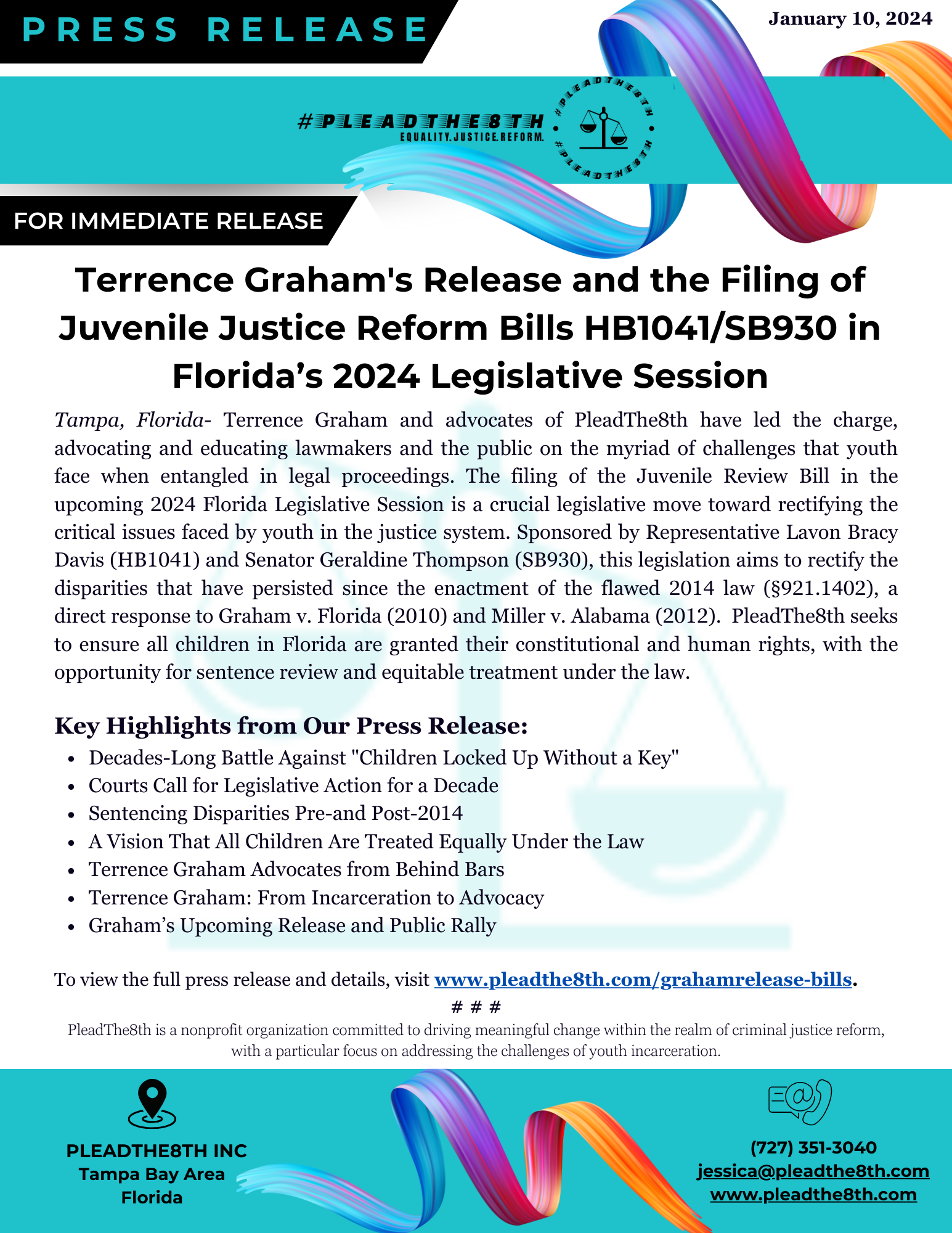
WE HAVE A VISION THAT ALL CHILDREN ARE TREATED EQUALLY UNDER THE LAW.
Terrence Graham and advocates of PleadThe8th have led the charge, advocating and educating lawmakers and the public on the myriad of challenges that youth face when entangled in legal proceedings. The filing of the Juvenile Review Bill in the upcoming 2024 Florida Legislative Session is a crucial legislative move toward rectifying the critical issues faced by youth in the justice system. Sponsored by Representative Lavon Bracy Davis (HB1041) and Senator Geraldine Thompson (SB930), this legislation aims to rectify the disparities that have persisted since the enactment of the flawed 2014 law, a direct response to Graham v. Florida (2010). PleadThe8th seeks to ensure all children in Florida are granted their constitutional and human rights, with the opportunity for sentence review and equitable treatment under the law.
"We extend our deepest gratitude to Senator Geraldine Thompson and Representative LaVon Bracy Davis for their support and sponsorship of these critical bills," states Jessica Richardson, Founder of PleadThe8th. "Their leadership embodies the vision we hold close — that all children are treated equally under the law. It brings us closer to a future where the scales of justice balance mercy and accountability, offering renewed hope to countless youth."

Decades-Long Battle Against "Children Locked Up Without a Key"
Despite the positive changes since 2014, the reality remains that many youth are still facing excessively long sentences, often outstripping their sentencing scoresheets, mandatory minimums, and state averages, while also lacking a mechanism for review. These practices have not only disrupted countless lives but have also raised serious concerns about the violation of the Eighth Amendment's protection against cruel and unusual punishments. Through the Juvenile Review Bill, HB1041 and SB930, and our broader advocacy efforts, we aim to bring these issues to the forefront and champion legislative changes that reflect justice, fairness, and rehabilitation.
The courts have repeatedly called for the legislature to address the anomalies, ambiguities, and constitutional issues present in the current law, urging for a decade with little response until now. HB1041 and SB930 represent the critical need to ensure that the sentencing of youth reflects both justice and humanity, incorporating the U.S. Supreme Court's stance that children are fundamentally different from adults and should have opportunities for review.
Courts Call for Legislative Action for a Decade
Our advocacy is fueled by the urgent need for comprehensive reform, as detailed in our recent report, “Highlighting Inconsistencies and Calls for Legislative Action: Florida’s Juvenile Sentencing Reviews, §921.1402 (2015-2023).” This report meticulously compiles over 40 cases, highlighting a decade-long judicial call for legislative action and exposing anomalies, ambiguous language, inequitable treatment, and constitutional quandaries of the existing law (§921.1402).
From 2015-2019, Florida courts recognized that all children were entitled to review, reflecting U.S. Supreme Court rulings in Graham v. Florida (2010) and Miller v. Alabama (2012), which emphasized the need for youth to demonstrate maturity and rehabilitation. However, a shift in 2020 (Pedroza v. State) led to a more selective application of the law, leaving hundreds without hope for review.
Sentencing Disparities Pre-and Post-2014
Florida's history with juvenile sentencing has been marked by excessive punishments, as highlighted in Graham v. Florida. In our upcoming report we will delve deeper into the vast and disturbing sentencing disparities of children within the state.
🚩Preliminary findings are alarming: children sentenced pre-2014 faced an average of 23 years in prison, while those sentenced post-2014 face an average of just 10.7 years. These significant disparities exist across crime categories indicating grave punitive punishments. Additionally, these pre-and post-2014 disparities are particularly disturbing since youth who committed crimes pre-2014, with harsh terms of years sentences, are lacking a review mechanism under the current state of the law. These disparities, coupled with our report highlighting judicial inconsistencies and calls for legislative action, underscore the urgent need for a legislative overhaul to ensure just and equitable treatment for all children. The dramatic shift in sentencing trends post-2014 illustrates a societal and judicial shift towards more proportionate and reviewable sentences.
A Vision That All Children Are Treated Equally Under the Law
The passage of HB1041 and SB930 would ensure alignment with the Supreme Court's rulings and international human rights standards. HB1041 and SB930 would further ensure that the current selective and inequitable treatment of children is rectified, allowing all children the same opportunities, regardless of the date of their crime or sentence length. The Juvenile Review Bill is more than legislation; it's hope for countless young individuals who have been unjustly treated by a flawed and inequitable system.
We urge all concerned citizens to voice their support for HB1041 and SB930 by reaching out to their local legislators. Your advocacy is crucial in ensuring that every child receives equal treatment.
Terrence Graham Advocates from Behind Bars
Terrence Graham, a name synonymous with juvenile justice reform, has been advocating for change from behind bars. Convicted of a non-homicide crime as a teenager, Graham faced the prospect of dying in prison under a sentence far exceeding the national average, state average, mandatory minimum, and his sentencing scoresheet. The 2010 Supreme Court ruling in his case declared life without parole sentences for juveniles convicted of non-homicide offenses unconstitutional, acknowledging the Eighth Amendment's prohibition against cruel and unusual punishment. His case, Graham v. Florida, not only led to personal redemption but also transformed sentencing laws for non-homicide juvenile crimes nationwide.
Terrence Graham: From Incarceration to Advocacy
PleadThe8th named Graham a co-founder in recognition of his contributions and the organization's namesake stemming from his landmark case. Terrence’s journey from incarceration to leading reform efforts exemplifies the power of resilience and dedication. Although the reforms do not benefit him directly, his commitment to advocating for those still serving disproportionate sentences shines a light on the path forward, urging support for SB930 and HB1041 to ensure no child is left without the hope of review and the need for systemic change.
Graham’s Upcoming Release and Public Rally
We are also thrilled to announce the upcoming release of Terrence Graham. As he prepares for his release in February after serving over 20 years and once being known as a “juvenile lifer,” his story continues to inspire and drive the mission for a more equitable and just legal system. This momentous occasion marks a new chapter in the fight for juvenile justice, and we invite the public to join us in rallying to support his release. This gathering is not only a celebration of Terrence's freedom but also a collective call for continued advocacy and reform. It is an opportunity for the community to stand together in solidarity, recognizing the profound impact of Terrence's case on the lives of hundreds, perhaps thousands, of children across the nation and the ongoing need for change for youth involved in the legal system.
Terrence Graham is set to be released on February 13, 2024, following a 9:00am hearing at Duval County Courthouse.
Stay tuned for more details and updates on this significant event.
Terrence Graham's Countdown to Freedom!
PRE-AND POST-2014 SENTENCING DISPARITIES
INEQUITABLE TREATMENT OF JUVENILES AND JUDICIAL CALLS FOR LEGISLATIVE ACTION
Follow Us
Share
Leave us a comment.
Share our Blog!
Voices of the Silenced:
Check out our other blogs!
Kids in Prison: Voices of the Silenced. #PleadThe8th
